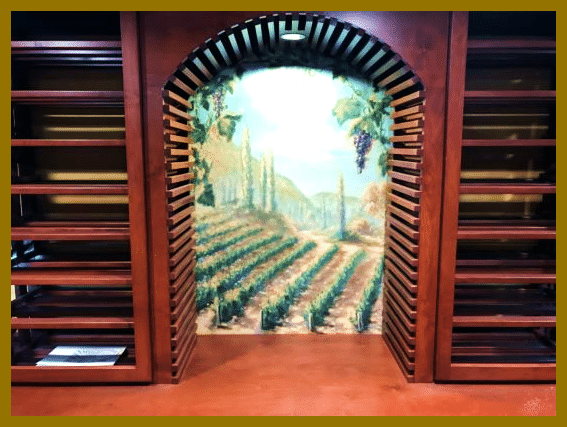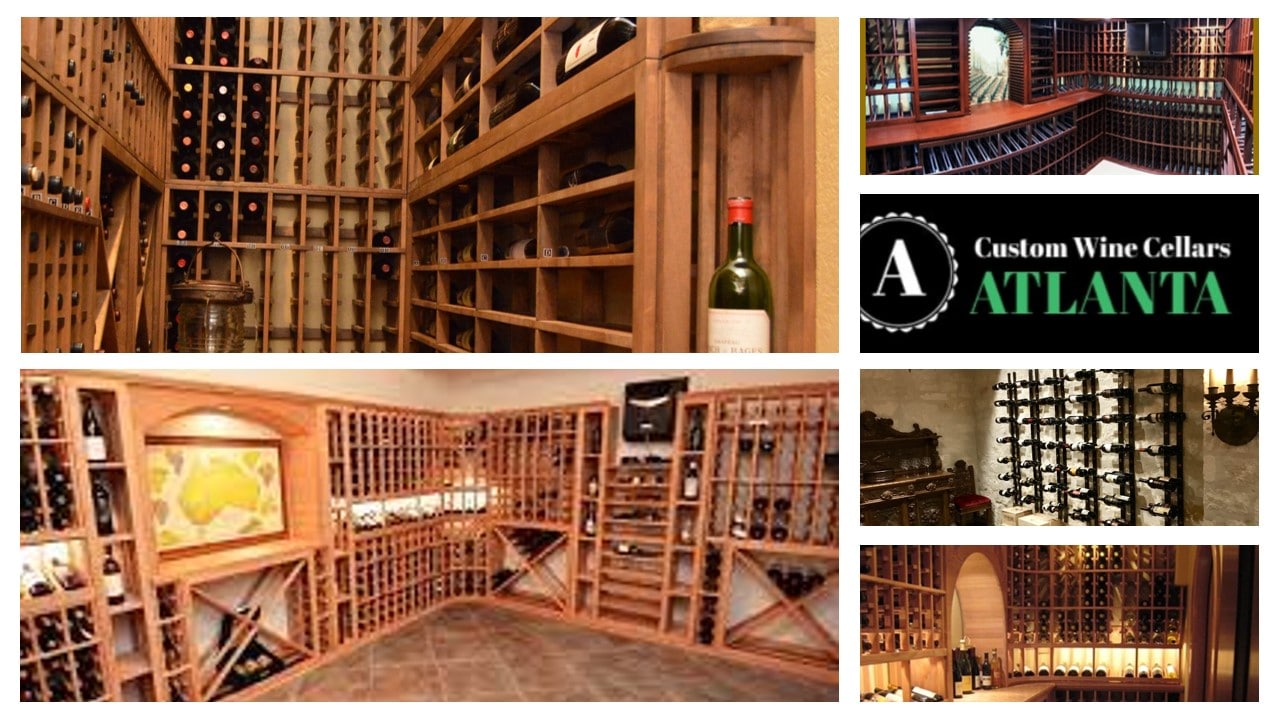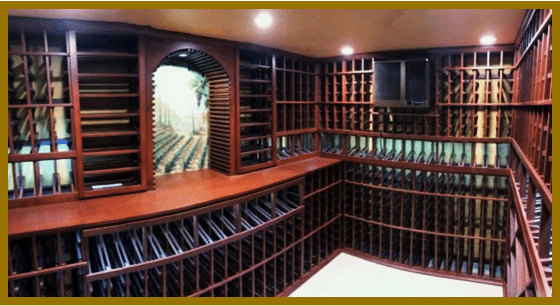Designing and building a contemporary wine room in a home basement requires careful assessment and planning. This basement wine cellar is one example of a challenging, yet exciting project that was successfully completed by our Atlanta basement custom wine cellar experts.
Phase 1: Starting the Basement Project – Consultation and Creating a 3D Wine Cellar Design
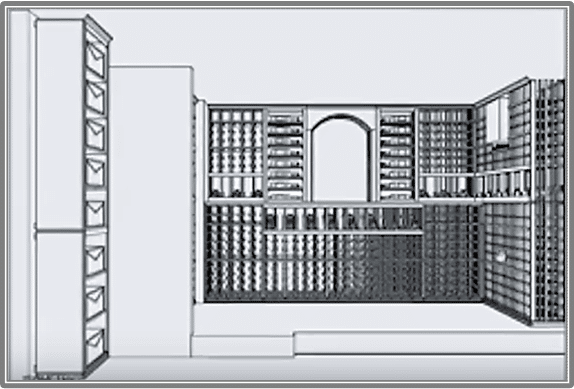
The team came up with this wine cellar design after they discussed with the client how he imagined his wine cellar would look like in the basement.
Wine cellar projects begin by discussing with the clients every aspect of the design they want to achieve. At Custom Wine Cellars Atlanta, we make sure that we clearly understand how the clients plan to store, display, manage, and grow their wine collection.
For this home wine cellar project, the client needs to store 1,598 bottles. The space he wants to convert into a wine room is a basement area behind a three-car garage that measures 13.5 x 9.5 x 7 feet.
After the consultation, the design team created a 3D wine cellar design package. The 3D wine cellar design plays a vital role in the success of the project. It allows the client to visualize his wine room clearly and ensures that every design specification is included.
When the client approved the design, we proceeded to the next phase.
Phase 2: Preparing the Space to be Converted into a Cellar
This phase includes the following steps:
- Prepping the walls
- Installing the vapor barriers
- Adding insulation
- Putting up drywall (moisture resistant)
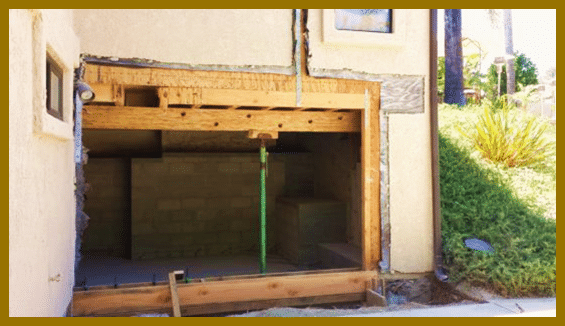
Prior to converting the basement into a wine cellar, the team installed vapor barrier and insulating materials between the wall cavity.
To prep the walls, the construction team took down the exterior wall to expose the storage space. Since this wine cellar is climate-controlled, vapor barriers and insulating materials were installed. These materials help maintain the cold temperature inside the wine storage room. Moisture-resistant drywall was also included to prevent the buildup of molds.
Phase 3: Constructing the Wine Cellar
This phase involves the construction of the wine racks and the installation of the wine cellar cooling system. One unique aspect of this wine cellar is the use of wooden wine racks to achieve a contemporary wine cellar design.
Wooden Wine Racks Made of Alder Wood
There are various wood options for building wooden custom wine racks. For this wine cellar, Alder wood was chosen because of its durability and high resistance to pest infestation. Alder wood is known for its “chameleon” property which means it can imitate the outer look of the other wood species. It has a natural red, orange, or brown color if left unstained.
Upon entering the cellar, there are wood case storage racks in the foyer area on the left side. On the right are quarter-round display shelves where wines or ornaments can be displayed.
In the main storage area, you can see the beautiful arch opening with a mural at the center. On the sides of the arch are label-forward horizontal displays and single bottle storage openings with a tilt to display wine. Each cubicle has a size of 3 3/4-inch opening which can accommodate Bordeaux, Cabernets, oversized Pinots, Burgundy bottles, standard champagnes, and all kinds of Zinfandels.
We included a countertop so the owner will have a space to work with when opening a bottle or serving wine. Below the countertop is a double-deep display row with more individual bottle storage racks.
Across the arch are diamond bins for bulk wine storage and additional single bottle storage racks. On the right-side wall are also single bottle storage racks and a high reveal display row.
LED Lighting on the Display Row
Installing an LED lighting system on the display row highlights the owner’s favorite vintages. Take note that it is not just any ordinary light. It must be an LED type of lighting because it emits minimal UV rays and heat that can potentially damage the wine.
Split Wine Cellar Cooling Unit from WhisperKOOL
WhisperKOOL is one of the most trusted brands used by wine cellar builders. It is known for its durability, functionality, and style. Click here to learn more about wine cellar refrigeration systems and the different brands commonly used in climate-controlled wine cellars.
Since this Atlanta basement wine cellar is a bit large, a WhisperKOOL Platinum Split System Model 8000 was chosen. It is a ductless split type of cooling system which is ideal for large wine rooms. The evaporator is installed on the right-side wall of the cellar. The condenser is placed in a separate room where heat and noise are emitted.
If you are looking for a wine cellar refrigeration unit, you can consult our refrigeration experts here at Custom Wine Cellars Atlanta. It is crucial that you work with a wine cellar expert because there are vital factors to consider in choosing the right type of cooling system for your wine cellar.

For a free consultation and a free 3D wine cellar design, reach out to the Coastal Custom Wine Cellars team.

